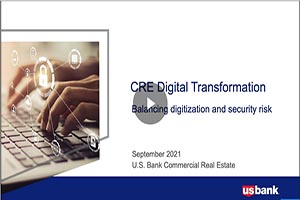Financial Stability Board proposes framework for international regulation of cryptoasset activities
On October 11, 2022, the Financial Stability Board (FSB) released a proposed framework for global regulation of crypto assets (the Proposed Framework). In connection with the Proposed Framework, the FSB also issued (1) a consultation regarding the regulation, supervision and oversight of cryptoasset activities and markets (Cryptoasset Recommendations) and (2) a consultative report on “global stablecoin” arrangements (Stablecoin Recommendations).
The FSB seeks public comment on the framework and recommendations by December 15, 2022. The FSB intends to finalize its recommendations by mid-2023.
Proposed Framework
The Proposed Framework sets forth general principles for comprehensive international regulation of cryptoassets and stablecoin arrangements.
- The FSB recommends that cryptoasset regulatory and supervisory frameworks be based on the principle of “same activity, same risk, same regulation.”
- Where cryptoassets and intermediaries perform an economic function that is equivalent to that performed by instruments or intermediaries from the traditional financial sector, the cryptoasset and its associated intermediaries should be subject to equivalent regulation. For example, if the issuance and distribution of a stablecoin or other cryptoasset fulfills a bank-like function, the stablecoin/cryptoasset and its associated intermediaries should be subject to regulation that is consistent with the global standards and regulation that applies to commercial bank activities (e.g., Basel Committee on Banking Supervision capital standards).
Cryptoasset Recommendations
The Cryptoasset Recommendations set forth nine proposed recommendations for the regulation and supervision of cryptoasset activities and markets. They are focused on regulatory and supervisory issues broadly and do not comprehensively address specific risk categories.
Stablecoin Recommendations
The FSB issued a report with 10 high-level recommendations on the regulation and supervision of global stablecoin arrangements in October 2020. The Stablecoin Recommendations update these recommendations in light of recent cryptoasset market developments. FSB’s analysis of several of the largest stablecoins indicates that most existing stablecoin arrangements do not meet these recommendations and significant improvements are to be made to their governance, risk management, redemption rights, stabilisation mechanisms and disclosures.
Our role
U.S. Bank is closely monitoring developments in the crypto assets space and is engaging with the industry on a joint response to the FSB’s consultation.
SEC proposes amendments to rules regarding ESG for certain funds and advisers
On June 17, 2022, the Securities and Exchange Commission (SEC) published two new rule proposals that will impact the fund and investment management industry.
Investment Company Names: amendments to the fund “Names Rule” proposal
Section 35(d) of the Investment Company Act of 1940 prohibits a registered investment company from adopting as part of its name any word or words that the SEC finds are materially deceptive or misleading. The SEC seeks to update the Names Rule to account for changes in the funds marketplace since the rule was adopted in 2001. Under the proposal, the Names Rule would extend to investment options that meet certain environmental, social or governance (ESG) criteria. The SEC intends the proposed amendments to the rule to modernize and enhance investor protection.
Salient points in the proposal are:
- The requirement for certain funds to adopt a policy to invest at least 80% of their assets in accordance with the investment focus that the fund’s name suggests.
- This would include requiring the 80% policy for names suggesting a focus on investments that have or investments whose issuers have “particular characteristics,” such as “value,” “growth,” and “ESG.”
- Clarification that “integration funds” (a fund that considers ESG alongside but not more centrally than other non-ESG factors in its investment decisions) would not be permitted to use ESG or similar terminology in its name as doing so would be materially deceptive or misleading for investors.
- Enhanced prospectus disclosure requirements for terminology used in fund names, and additional requirements for funds to report information regarding compliance with the proposed names-related regulatory requirements.
Enhanced disclosures by certain investment advisers and investment companies about ESG investment practices
The SEC is proposing to amend rules and forms under both the Investment Adviser Act of 1940 and Investment Company Act to require registered investment advisers, certain advisers that are exempt from registration, registered investment companies and business development companies (BDCs) to provide additional information regarding their ESG investment practices..
The proposal is designed to provide consistent standards for ESG disclosures, allowing investors to make more informed decisions as they compare various ESG investments..
Under the proposal, funds that consider ESG factors in their investment process would be required to disclose additional information regarding their strategy. The level (amount) of required disclosure depends on how central ESG factors are to a fund’s strategy. The ESG disclosure contemplates three types of ESG funds/strategies:
- Integration funds: Funds that integrate ESG factors alongside non-ESG factors in investment decisions would be required to describe how ESG factors are incorporated into their investment process.
- ESG-focused funds: Funds for which ESG factors are a significant or main consideration would be required to provide detailed disclosure, including a standardized ESG strategy overview table. These funds would also disclose additional information on the greenhouse gas (GHG) emissions associated with their portfolio investments. Funds that disclose that they do not consider GHG emissions as part of their ESG strategy would not be required to report this information.
- Impact funds: A subset of ESG-focused funds that seek to achieve a particular ESG impact would be required to disclose how it measures progress on its objective.
Based on the proposed amendments, funds and advisers would need to adopt new compliance policies and procedures regarding their ESG-related strategies in order to help ensure the accuracy of the various prospectus and brochure disclosures.
Industry reaction
The two proposals have raised some pushback in the fund industry. The Investment Company Institute (ICI), an association representing regulated investment funds, provided the SEC with feedback outlining concerns with certain aspects of the proposed amendments. According to their letter regarding Investment Company Names, the proposed changes to the Names Rule are complex, create interpretive challenges, may limit innovative fund strategies and would increase compliance costs that are generally passed on to shareholders as a fund expense. Similar concerns were raised in their letter regarding Enhanced Disclosures by Certain Investment Advisers and Investment Companies about ESG Investment Practices in which the ICI recommends modifications to avoid negative impact on the fund industry while still achieving the goals set in the proposal. Among the recommendations are revisions concerning the ESG fund strategies: alignment of the definition of ESG-focused fund to the current disclosure framework and practices; enhanced disclosure to be required only for ESG-focused funds, but not integration funds; less-prescriptive prospectus disclosure requirements for ESG-focused funds; adjustment of the impact fund disclosure requirements to the current disclosure framework and impact investing practices.
ESG and sustainable investments – European focus
ESG and sustainable investing overview
ESG and sustainability continues to be a hot topic for both the European Securities and Markets Authority (ESMA) and the Central Bank of Ireland (CBI) and will continue to be for the foreseeable future.
In Ireland, the number of sustainable funds classified as Article 8 and Article 9 continues to grow and the expectation is that this will be a continued area of interest and growth as investors look to make more impactful investing decisions. In our Regulatory Outlook Report, we take you through some of the key regulatory changes over the past few months. As this is an ever-revolving landscape, we will touch on some of the recent developments briefly in this space.
Regulatory framework
Recent regulations include the European Union (Undertakings for Collective Investment in Transferable Securities) (Amendment) (No.2) Regulations 2022 The European Union (Undertakings for Collective Investment in Transferable Securities) (Amendment) (No.2) Regulations 2022 (Amending UCITS Regulations) came into operation on September 12, 2022.
The Amending UCITS Regulations transpose Commission Delegated Directive (EU) 2021/1270 into Irish law and require Irish management companies to:
- Take sustainability risks into account when conducting due diligence on investments.
- Where relevant, consider the principal adverse impacts of investment decisions on sustainability factors.
- Update existing risk management procedures to incorporate the assessment of material sustainability risk which may arise for funds under management.
- Identify conflicts of interest, which arise because of integration of sustainability risks in their processes, systems and internal controls.
- Take sustainability risk into account in their organisational structure.
- Ensure that their senior management assumes responsibility for the integration of sustainability risks in the investment and risk management processes.
- Ensure that they retain adequate resources and expertise for the integration of sustainability risk.
Corresponding rules have been imposed on Irish domiciled AIFMs since August 1, 2022, when the Commission Delegated Regulation (EU) 2021/1255 took effect.
ESMA long-term priorities
On October 10, 2022, ESMA announced its long-term priorities from 2023-2028 and unsurprisingly, ‘enabling sustainable finance’ is a key endeavor. ESMA’s other priorities include focusing on strengthening supervision, enhancing the protection of retail investors, fostering effective markets and financial stability, facilitating technological innovation and effect.
European Supervisory Authority – increasing regulation
On September 30, 2022, the European Supervisory Authority (ESA) published a final report containing draft Regulatory Technical Standard (RTS) which will amend the Sustainable Finance Disclosure Regulation RTS (the SFDR RTS) due to come into effect on January 1, 2023. The Sustainable Finance Disclosure Regulation (SFDR) is a European regulation introduced to improve transparency in the market for sustainable investment products, to prevent greenwashing and to increase transparency around sustainability claims made by financial market participants.
The SFDR requires asset managers such as AIFMs and UCITS managers to provide prescript and standardized disclosures on how ESG factors are integrated at both an entity and product level. A significant portion of the SFDR applies to all asset managers, whether they have an express ESG or sustainability focus or not.
The amendments proposed by the ESAs:
- Focus on disclosures relating to specific investments in fossil gas and nuclear energy related environmentally sustainable economic activities as part of the disclosures of the taxonomy-aligned investments of a financial product.
- Make a technical change to Article 55 of the SFDR RTS (which provides that periodic disclosure of taxonomy-aligned investments for Article 8 SFDR financial products is conditional on a “commitment to make investments in economic activities that contribute to an environmental objective within the meaning of Article 2, point (17), of Regulation 2019/2088”) to remove the pre-condition of “commitment.”
- Make two corrections to cross-references in the periodic disclosures under Article 55 and 62 of the SFDR RTS.
- Make minor changes to the templates for financial product pre-contractual and periodic disclosures provided in Annexes II to V to the SFDR RTS.
Central Bank of Ireland – ESG focus
As we move toward the year end, regulators including the Central Bank of Ireland (CBI), have been keeping a keen focus on ESG matters.
In November, the CBI issued an information note: Sustainable finance and the asset management sector: Disclosures, investment processes and risk management.
The information sets out the findings of the CBI’s sampling of investment fund disclosures, sets out expectations around the implementation of the SFDR and the Taxonomy Regulation and provides a roadmap for how the Central Bank will supervise these requirements in the future.
Key items for consideration
- From January 2023, the Central Bank expects that any information provided to investors (via fund documentation, marketing material or otherwise) is fully aligned with the requirements of SFDR, the Taxonomy Regulation and related available guidance.
- Expectation that when a fund classifies itself as an Article 8/9 fund, that this is not merely lip service and that it is clear to investors it is a sustainable product to prevent ‘greenwashing.’
- Clear quantitative restrictions and rules to measure how the fund adheres to ESG.
- Disclosures regarding sustainability risks and how sustainable investment is considered as part of the investment decision process.
- Benchmark index composition should be monitored and screened on a regular basis.
- As Article 8 funds are not currently subject to any minimum sustainability criteria such as minimum investment thresholds/prescribed composition of investments, the Central Bank supervisory engagement will focus on funds with a low proportion of their portfolio promoting environmental and/or social characteristics.
- Disclosures in the fund’s offering, constitutional documentation and marketing material should be consistent.
- Fees and costs should not be disproportionate for Article 8 and Article 9 funds without a legitimate rationale.
- If the fund engages with securities lending, this should be aligned with ESG characteristics.
Furthermore, during a recent keynote speech at the Central Bank Asset Management Sustainable Finance Seminar, Deputy Governor Derville Rowland stated in respect of the CBI’s expectations on the industry:
“In light of the above, the Central Bank necessarily has high expectations of the funds sector regarding sustainable finance and has been communicating publicly these expectations over the last two years. We think it is critical that the sector is positioned to support a timely and effective transition to a more sustainable economy, and for this to happen, standards must be high.”
The message is loud and clear from the Irish regulator, and U.S. Bank will continue to monitor this arena.
There will be a growing focus on how depositaries are ensuring that both UCITS and AIFs are complying to their ESG investment rules. Depositaries will be required to consider how they can monitor compliance from an investment compliance monitoring perspective, reporting and recording of potential ESG breaches and to consider when and if these breaches would be reported in the annual financial statements and to the CBI.
Our role
Through our engagement at industry level, U.S. Bank Depositary Services is dedicated to solutioning such requirements and working with asset managers to ensure we are meeting the regulator’s expectations in this dynamic and fast changing regulatory landscape. From our partnership with Sustainalytics, we are comfortable that we can meet the regulator’s expectations and continue to provide thought leadership in this area.
For questions or concerns, please contact a member of our team:
Lili Popova-Flashenburg
Vice President, Global Network Management Regulatory Review Manager
(United States)
Phone: +8573382167
Email: lili.popovaflashenburg@usbank.com
Caroline Geraghty
Vice President, Senior Depositary Manager - Europe
Phone: +353873205938
Email: caroline.geraghty@usbank.com
PDF Download




































































